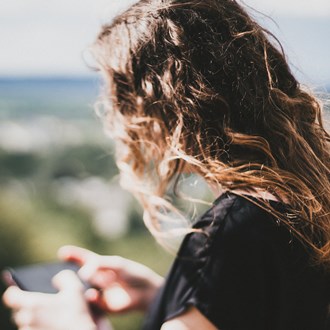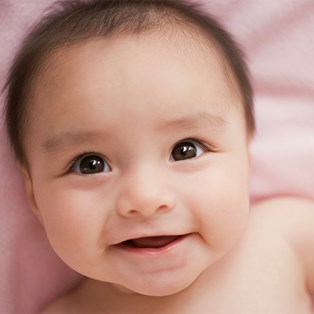Baby’s first words: when do babies start to talk?
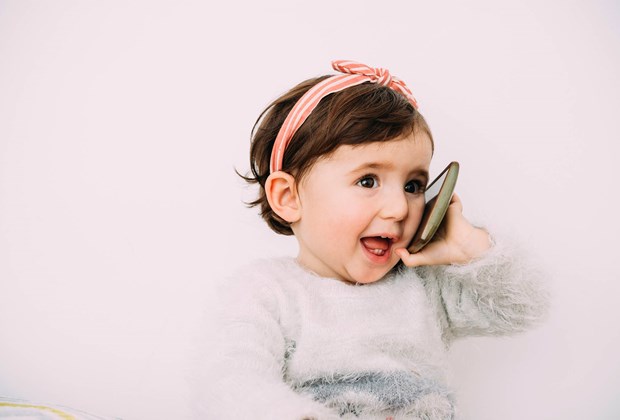
Communicating with your bub begins at birth, but speech development starts with you
By Practical Parenting team
March 13 2019
Your baby wants to communicate with you from the day she is born. She quickly learns that if she cries someone comes to help, and because your baby is born with an innate ability to talk, this link between you and your baby quickly grows and develops into give-and-take-speech.
How do babies learn to speak?
You baby’s speech begins with her listening intently to how you and others talks. She starts by working out the difference in pause times, type of pitch, and the length of sentences.
When adults speak to babies, they generally change their pitch to make it slower and clearer, and their tone has a rhythmical up-down pattern. There’s a reason for this; it’s nature’s way of helping your baby recognise different patterns of speech more easily.
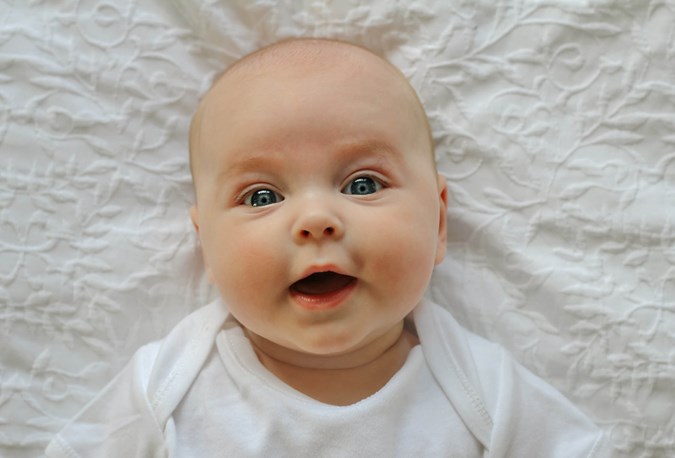
Getty Images
How can I help encourage my baby to talk?
Exposure to conversation and words is key. Reading, singing and giving a running commentary of the day (eg “We’re going to go and see Grandma now”) are all great ways to enrich your baby’s love of language.
The more exposure she has to different kinds of words, the quicker her speech will develop. Learning to speak and being understood can also help reduce the amount of frustrated tantrum-throwing behaviour in your toddler.
My baby isn’t talking yet. What should I do?
There are a few reasons for speech not happening as it should. For instance, if your bub has trouble hearing, her speech and behaviour will be different to others of the same age who can hear.
Hearing problems can be genetic or stem from recurrent ear infections or ‘glue ear’. If you are worried about your little one’s speech, it’s a good idea to have her hearing checked by your GO or local hearing centre specialist.
Facial muscles are also needed to speak well, so if your baby isn’t chewing food yet or frequently sucks on a dummy, this can affect her ability to form words.
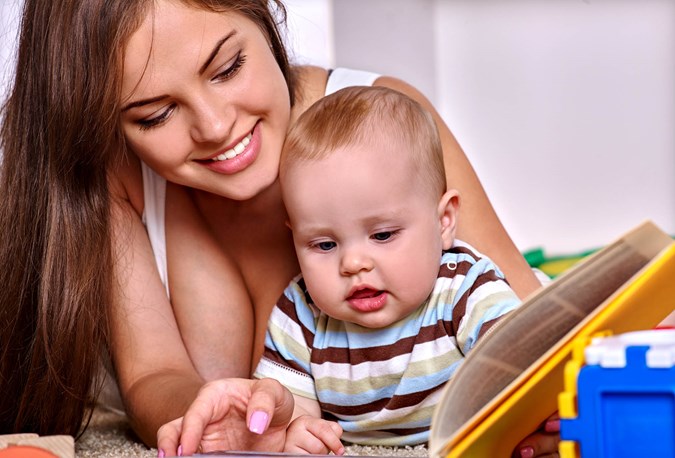
Getty Images
What are a baby’s first words?
Your baby should start to make vague ‘muh’ sounds at around six months of age. Smile, make eye contact, and talk back to her, then give her time to answer and you’ll be amazed how long you can ‘chat’ for.
Encouraging your bub with conversation is an important way to help her feel confident enough to keep trying different sounds, and by around nine months of age she’ll be saying words that you can recognise. She’ll also understand words like ‘no’ and bye-bye’.
Most babies say a few simple words like ‘mama’ and ‘dada’ by the time they are around 12 months – and will know what they mean too.
Other common first words are usually object or action words like ‘dog’, ‘car’ and ‘go.’ Then at an amazing speed she may accumulate a list of about 15 to 20 words by the time she is around 18 months of age.
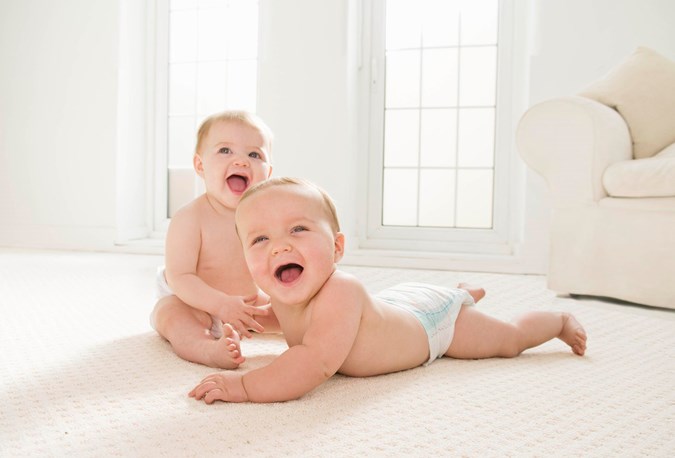
Getty Images
Should I correct my baby’s ‘wrong’ words?
Don’t shut your baby down by saying “No, it’s not boom it’s moon”, for example. Instead say: “Yes, that is the moon up in the sky.” This extends her language and she hears the word ‘moon’ said again properly.
When does a baby start to speak in sentences?
By around 18 months to two years of age your baby starts to put together two or three words to make simple sentences. She’ll start with concrete words such as “daddy work”, and you can respond by saying “Yes, Daddy has gone to work.” She will eventually add the extra words into her sentences.
Sometimes your toddler may keep the words to herself until around two years of age. Don’t worry, the most important thing at this age is that she understands what you say and can do things that you ask her to do.
An exciting world opens up when your little one can speak and be understood. Day by day, as you enrich her experiences and encourage her efforts she will feel secure in her progress. If you are at all concerned about her speech development, have her checked by your child health professional.



